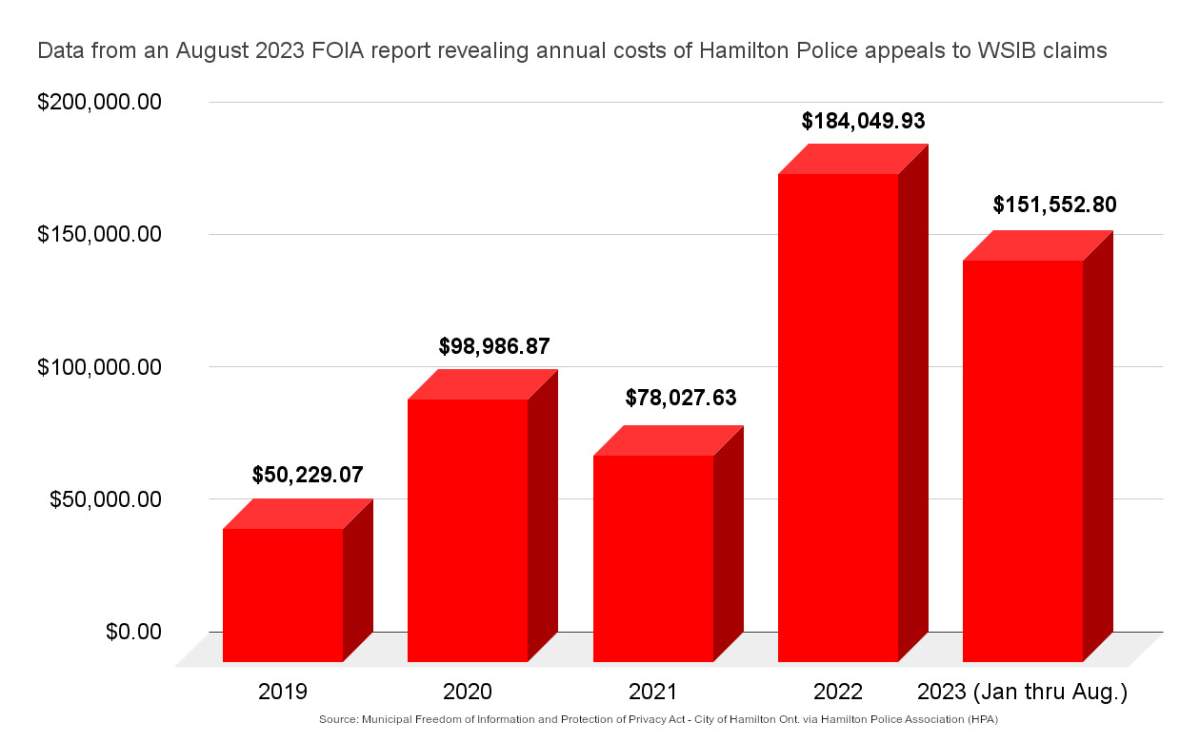The head of the association that represents some 1,200 workers with the Hamilton Police Service (HPS) is seeking better supports for the mental health of frontline officers.

Hamilton Police Association (HPA) President Jaimi Bannon is not only calling for an end to a stigma around “mental health illness” but is requesting a “fulsome wellness unit” staffed with members who have lived experiences.
Bannon sought out support at the police service board on Thursday, submitting member wellness is not “an operational matter” under the purview of the service but the board.
“You have the authority to ensure the shortcomings of the current program are rectified,” Bannon said.
The HPA lead said many members fear they will be seen as “weak if the employer knows their struggle.”
“They fear for their career development positions and employment opportunities as well as promotions. They fear for being ostracized, gossiped and isolated.”
At the root of the HPA claim is a suggestion that member wellness is compromised via the number of psychological injury claims from their members challenged by the HPS.
Through a Municipal Freedom of Information Act (FOI) request, the HPA revealed HPS spent just over $562,000 between 2019 and the end of August 2023 in legal fees to fight Workplace Safety and Insurance Board (WSIB) claims from members.
Bannon says “various sources” told her that an estimated 28 psychological injury claims from 2020 to date saw 15 members’ claims, accepted by the WSIB, challenged by the service.

Get breaking National news
“More than 50 per cent of the psychological claims of members of the 15 appeals, 12 have been concluded, and each of them the employer lost the appeal,” Bannon said.
“In other words, the service has lost every single appeal that has been initiated in the past three years.”
Hamilton’s police chief confirmed the spending in legal services between 2019 and 2022 but says of 64 claims over that time, only eight have been challenged by their human resources branch.
Frank Bergen acknowledged what the words ‘appeal’ means to members and suggested they need to better communicate how they are processing “very difficult” WSIB files.
“I’ll let the president speak to what they want to interpret in the FOI response … if something doesn’t fall within the definition of the (WSIB) legislation we also have an obligation to appeal,” Bergen said.
The HPA is recommending Hamilton police adopt a return-to-work model that employs a “peer-driven” reintegration for emergency responders after a traumatic incident, similar to ones adopted by Edmonton and Niagara police.
That program works through “triggers” a traumatic event creates for an officer and bolsters their confidence and eventual return at the subject’s own pace.
Bergen has pushed back on the HPA’s assertion the HPS approach to mental wellness through human resources is failing believing the service has found “the best of both worlds” by using existing policy and elements of the Edmonton model, particularly with peer supports.
He says assumptions that HR shouldn’t be involved is unwise since any member wellness program needs to ensure support is given in a timely manner.
Recent reintegration package upgrades include a psychological review and upticks in psychological benefits up to $20,000.
“I think there are a lot of components of the Edmonton model that we can absolutely wrap ourselves around and use, but we’re also making sure that we can be honest and transparent, that we have some Hamilton approaches to it that may not always align,” Bergen explained.












Comments